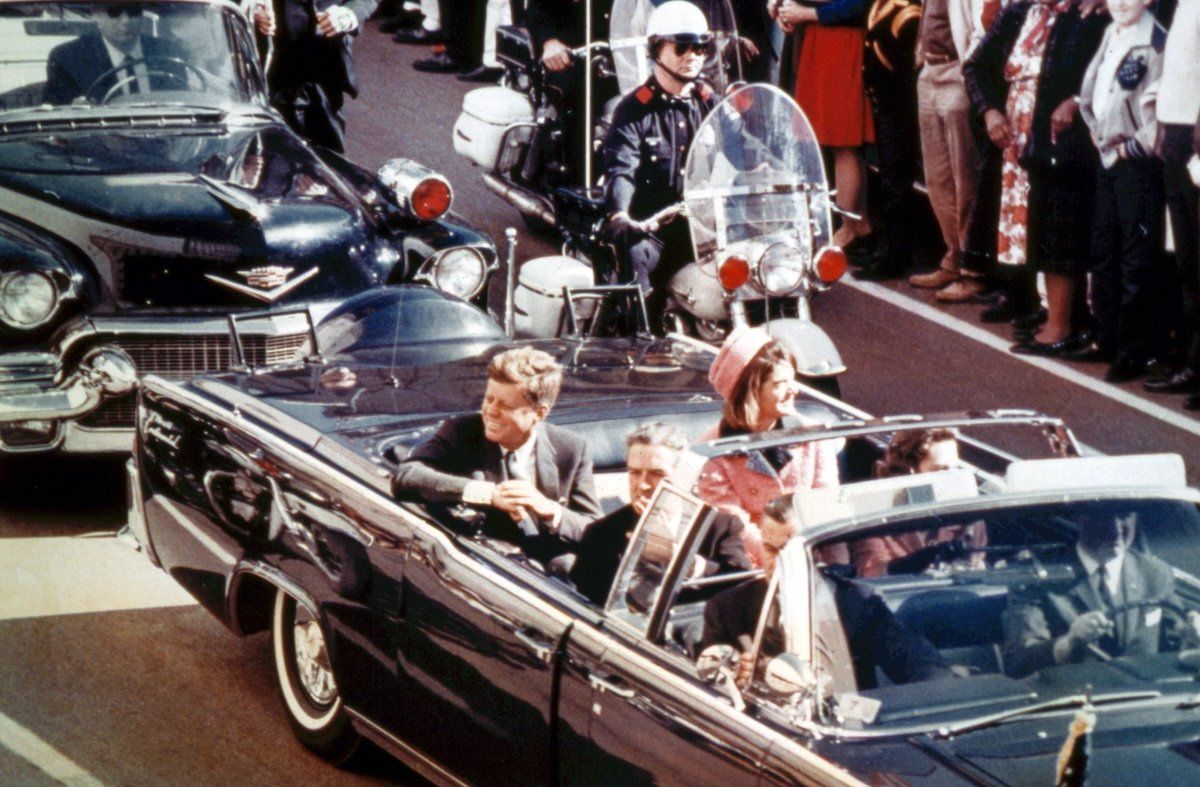HARD NUMBERS: Trump declassifies JFK docs, Saudis pledge huge US investment, Nepal hikes Everest fees, Taiwan tackles lizards, Trump releases activists, Oscars make transgender history
3: Donald Trump on Thursday ordered the government to declassify documents pertaining to three of the biggest, and most controversial, assassinations in American history: President John F. Kennedy in 1963, his brother Robert F. Kennedy in 1968, and civil rights leader Martin Luther King Jr., also in 1968. Will this finally put to rest the question of whether there was a second shooter on the grassy knoll? Back and to the left … back and to the left.
600 billion: Saudi Arabia has pledged to invest some $600 billion in the United States, part of a charm offensive with the kingdom’s most important Western ally. Trump suggested Thursday in his address to the World Economic Forum in Davos that the Saudis should top that up closer to $1 trillion. He suggested earlier this week that such investments could mean he’d consider making the kingdom his first foreign trip as America’s 47th president. Saudi Arabia has invested heavily in companies linked to Trump and his son-in-law Jared Kushner.
15,000: For the first time in nearly a decade, Nepal has hiked the permit fee for climbing Mount Everest. If you want to summit the highest peak on Earth, you’ll need to pony up $15,000, an increase of 36%. Each year, several hundred people attempt the ascent, which was first completed in 1953 by Edmund Hillary and Sherpa Tenzing Norgay.
120,000: If you love lizards, you’re ’guana cry about this one. Taiwan has announced plans to cull up to 120,000 green iguanas, an invasive species that is native to Central America and the Caribbean. Stretching to 2 feet in length, the sharp-toothed green iguanas pose no threat to humans, but they eat and destroy crops, wreaking havoc on the agriculture sector.
23: President Donald Trumpsigned pardons on Thursday for 23 anti-abortion activists who were convicted of illegally blocking access to abortion clinics. Among them was 31-year-old Lauren Hardy, who was serving a five-year term for leading a blockade on a clinic that resulted in the protesters forcing their way into the facility and injuring a nurse. The release came just in time for the annual March for Life, set for today in Washington, DC.
13: The musical film “Emila Pérez,” a Spanish-language French production about a drug kingpin who undergoes a gender transition, has garnered 13 Oscar nominations, the most of any film this year. Its star, Karla Sofía Gascón, became the first openly transgender actress to be nominated for an Oscar. Coming just three days after the new Trump administration moved to roll back recognition and protections for transgender people, the nominations carry a distinct political significance. The Academy Awards will take place on March 2.
